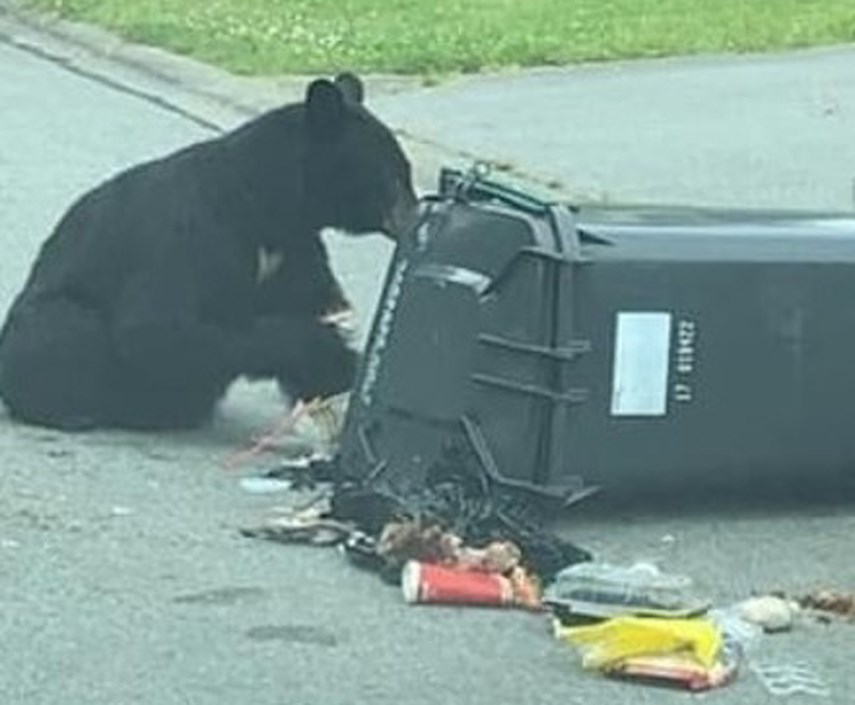The B.C. Conservation Officer Service is warning Deep Cove residents after a young bear that had been munching on local garbage had to be tranquilized and relocated.
Peak bear season is just about to begin, said conservation officer Lonnie Schoenthal, and North Shore residents need to step up their game and keep their yards free of attractants if the Deep Cove bear and others like it are going to make it to winter.
The young male bruin had been first spotted over the weekend prying open a Takaya Drive resident’s garbage tote. By Tuesday, there had been four more sightings of it accessing garbage and other food sources in people’s yards.
When Schoenthal caught up with it on Tuesday, it was in a backyard tree on Glenhaven Crescent.
“At that point, the bear showed little to no fear. It didn't show any aggression but it was comfortable with me around it. Ultimately, I ended up tranquillizing it. We had assistance from the fire department to get it down from the tree,” he said.
The bear was a healthy male, about a year old and weighing about 100 pounds, Schoenthal said.
Bears instinctively return to known food sources, so it’s important for everyone in the area to make sure there are no easy meals for it to find, Schoenthal said. That means taking down bird feeders, picking tree fruit as it ripens, only feeding pets indoors and keeping garbage inside until it is ready to be picked up, as well as keeping garbage bins and barbecues clean.
“We want this bear to stay as wild as possible, which is why it was released,” he said. “If the bear does return to the community and exhibits the same behaviours, unfortunately, we can't relocate this bear again.”
It’s been a slow year for bear activity on the North Shore, Shoenthal said, with no bears killed so far and only one bear relocated.
Schoenthal said human habituated bears should be reported to the province’s RAPP lines at 1-877-952-7277 (RAPP).



